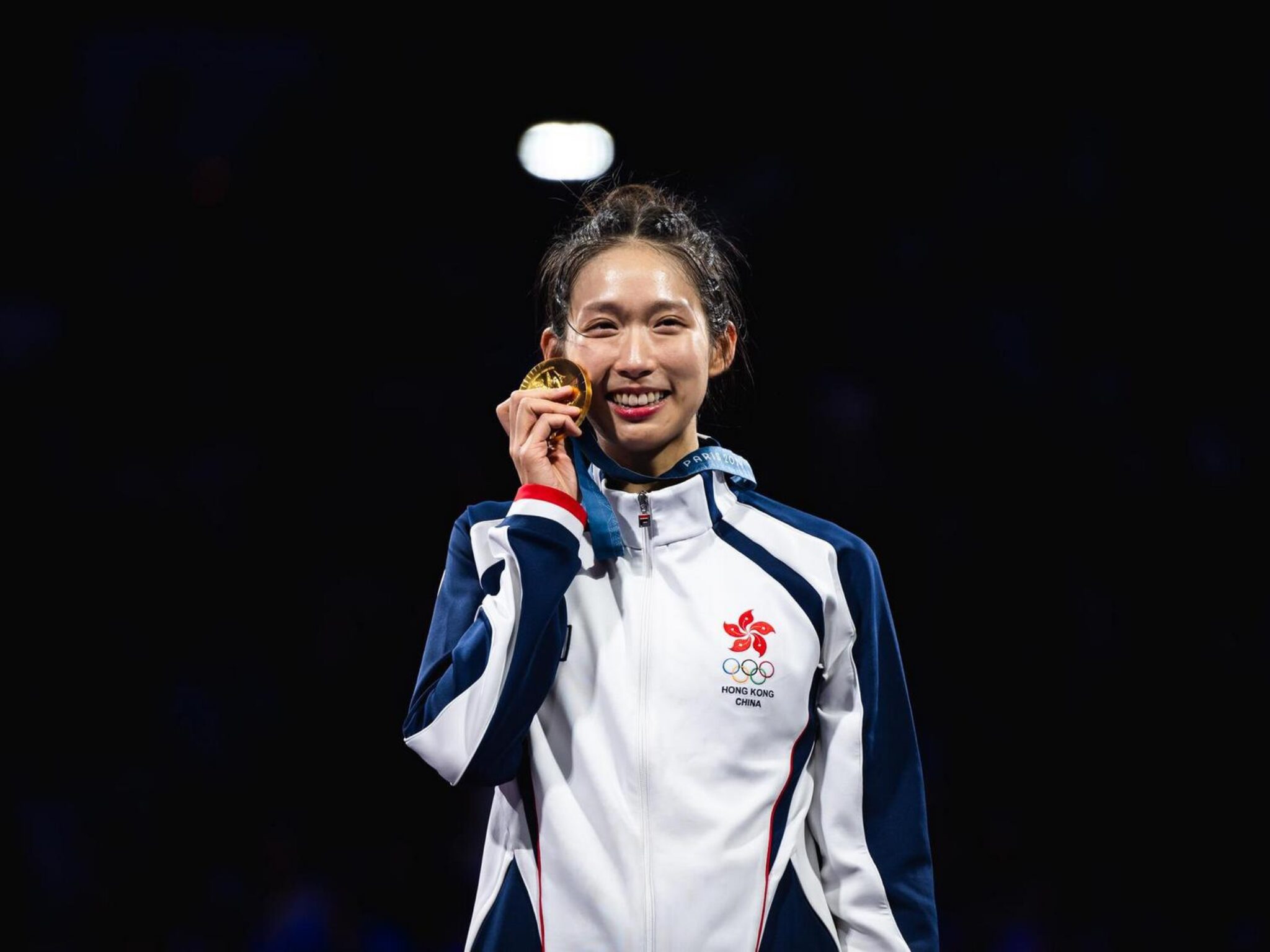5 Mins Read
Hong Kong épée fencer Vivian Kong Man Wai won gold at the Olympics and took home HK$6M ($770,000), the highest prize money at Paris 2024.
A lot has been made about the focus on vegan and vegetarian food at Paris 2024, as the Olympics looks to cut its carbon footprint. And while this has raised some controversies – and concerns about the organisers’ planning – this edition of the Games is host to a bunch of plant-based athletes competing for the medals.
One of them – Vivian Kong Man Wai of Hong Kong – made history by winning her first Olympic gold and taking home the tournament’s largest cash prize.
While the International Olympic Committee doesn’t dish out financial rewards for medals, several countries and regions do. At Paris 2024, Hong Kong is offering the highest payouts to athletes, with gold medallists like Kong – who went vegan in 2017 following a career-threatening injury – earning HK$6M (around $770,000).
“We are thrilled that with her outstanding performance, superb fencing skills and perseverance during the competition, she has earned the well-deserved gold medal,” said John Lee Ka-chiu, chief executive of Hong Kong. “She has once again made history for Hong Kong fencing and proved the extraordinary capabilities of Hong Kong athletes, making all Hong Kong people proud.”
Kong’s win a strong response to Olympic critics of plant protein

Kong’s appearance at Paris 2024 was thrown into doubt after she suffered a knee injury a month before the Games. But after recovering from the setback, she became Hong Kong’s first female gold medallist since Atlanta 1996.
During the women’s épée final, France’s Auriane Mallo-Breton led Kong 8-3 at one point, but the Hong Kong fencer fought back soon after, levelling the score at 12-12 before the clock expired. She got the winning sudden-death hit in overtime to win the gold medal.
It’s a big win for vegan athletes at the Olympics, and an apt response to critics who have lamented the apparent lack of protein and meat at Paris 2024, forcing the organisers to break their climate commitments and increase quantities of grilled meat.
It’s also a strong reminder to those who have questioned whether athletes can get enough protein and other nutrients from plants. This includes Philipp Würz, head of food at Paris 2024, who told the Washington Post that athletes “need a lot of proteins”, suggesting: “You can’t just say, okay, you go 60 or 100% vegetarian. It’s just not possible.”
Kong’s gold medal shows that it indeed is possible. Now the world number one, she turned vegan after injuring her anterior cruciate ligament in 2017. After initially struggling with prejudice at home, she had since competed at the Tokyo Olympic Games and won the Asian Championships thrice, before the Paris 2024 gold.
“I can be an example to show it’s possible, and it’s more motivation for me to work harder, have better results, and tell my story about how eating plant-based foods made me better and made me feel better too,” Kong told the South China Morning Post in 2018.
After the win, the vegan Olympian announced her decision to retire from full-time professional fencing and focus on “starting a new career and working towards having my own charity to help kids find joy and [put] playfulness back into sports”.

How vegans are faring at Paris 2024
Fellow Hong Kong fencer Cheung Ka-long joined Kong as a gold medallist after winning the men’s individual foil event, successfully defending his title at the Tokyo Games. They both were awarded with the highest amount of prize money at the 2024 Olympics.
Hong Kong announced a 20% hike in cash incentives for its Olympians ahead of the tournament (compared to the 2020 edition), with silver and bronze medallists receiving HK$3M ($385,000) and HK$1.5M ($193,000) respectively. Swimmer Siobhán Haughey won bronze in the women’s 200m freestyle, her fourth Olympic medal.
Singapore is second on the prize money list, giving its gold medallists SG$1M ($745,000). It is followed by Indonesia, Israel, Kazakhstan, Malaysia and Spain, each of which is also offering six-figure sums.
Kong isn’t the only vegan Olympian to win a medal at Paris 2024. British cyclist Anna Henderson bagged the silver in the women’s individual time trial, and Canadian fencer Eleanor Harvey won bronze in the individual foil event.
“I used to be like: ‘I’ll never be vegan, I love meat. But I think what happens is that we all dissociate from what meat is and what animals are,” Henderson told cycling magazine Rouleur in 2021. “I feel no difference, I feel better. I’m faster, I’m a bit leaner and I love it.”

Harvey, a vegetarian since the age of three and vegan since 10, told the Canadian Fencing Federation in 2019: “I just didn’t like how animals were treated, and so that was the primary reason. Also environmental reasons. I don’t think it’s maybe the right choice for everybody, but for me, it fits really well with how my body works.”
Other vegan Olympians hoping to get gold at Paris 2024 include Team USA’s Diana Taurasi, widely regarded as the greatest women’s basketball player of all time, and German 400m hurdler Constantin Preis.
This year, the Olympics pledged to make 60% of all food available to spectators meatless, while 30% of meals in the athletes’ village were said to be meat-free (a number that has been sustained despite the additional meat supply). Overall, the organisers said nearly a third of the 13 million meals at Paris 2024 will be plant-based.



